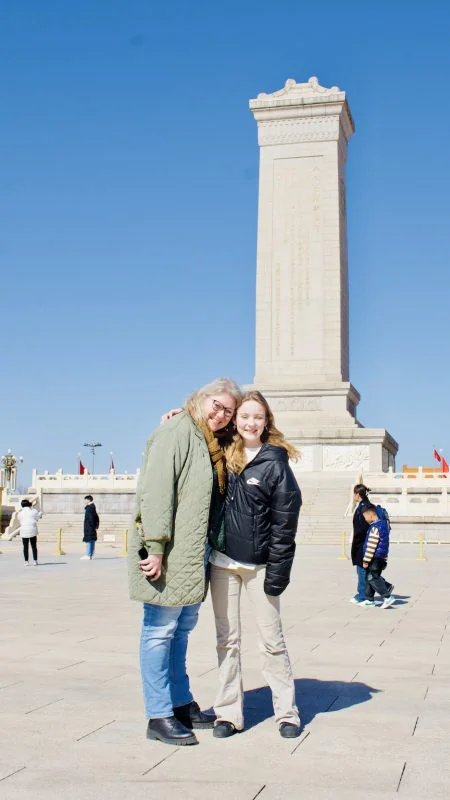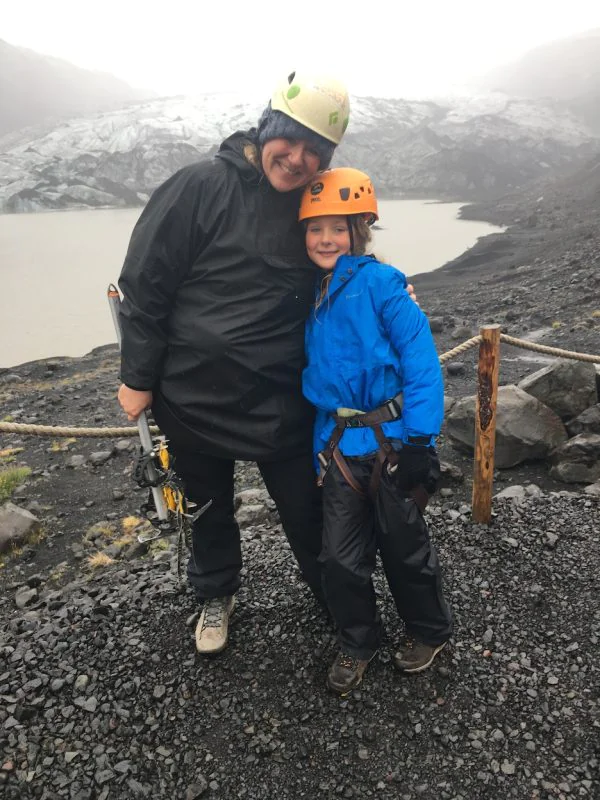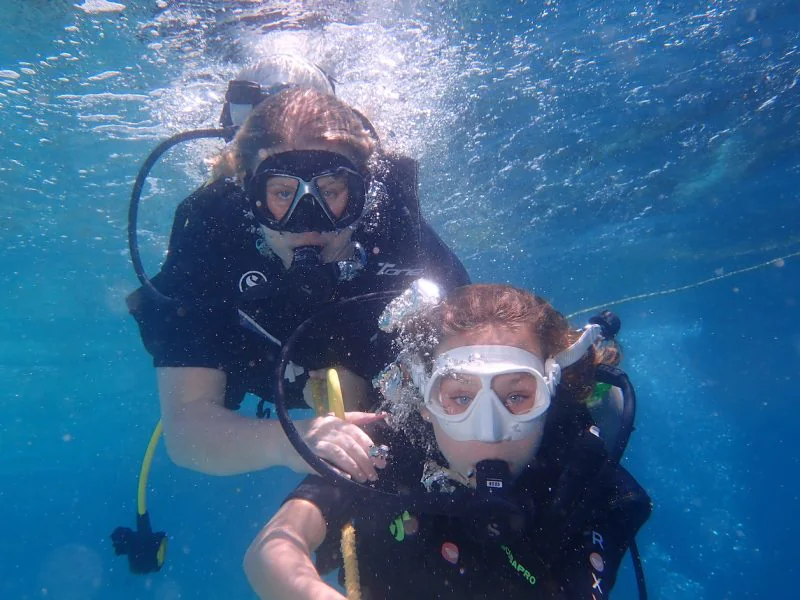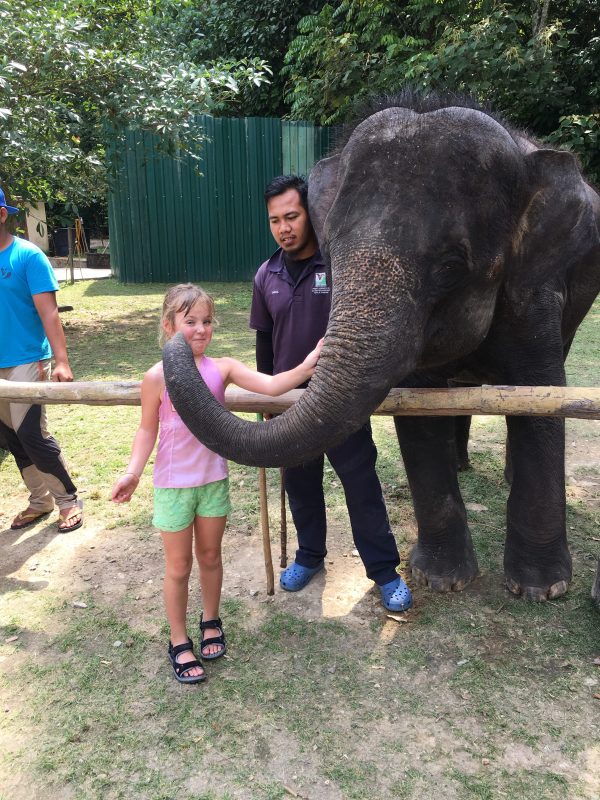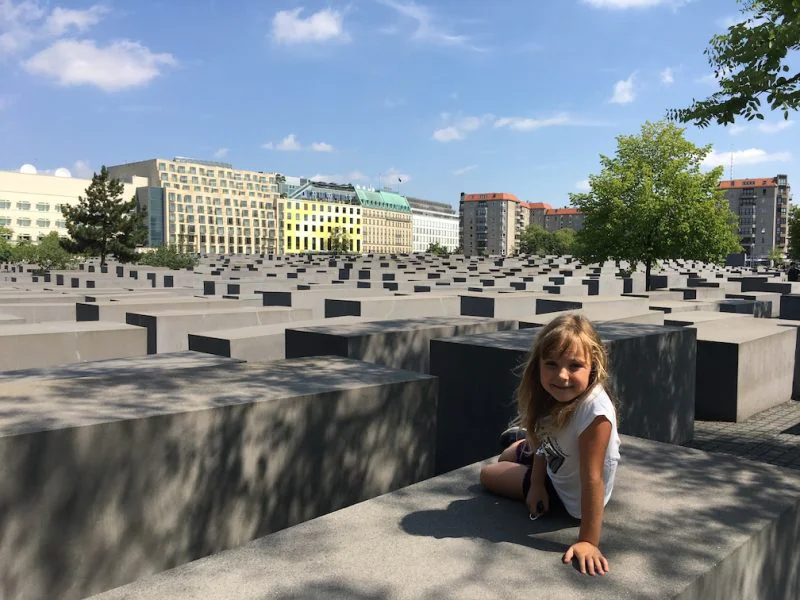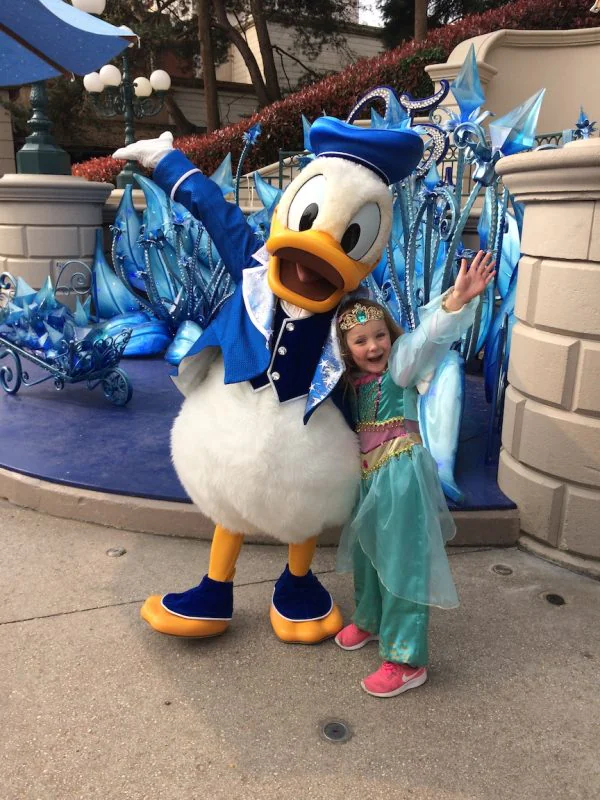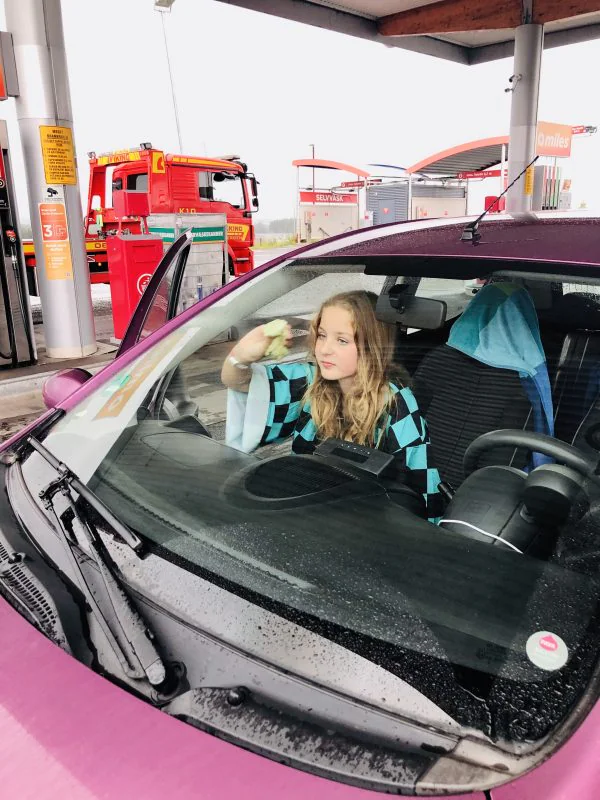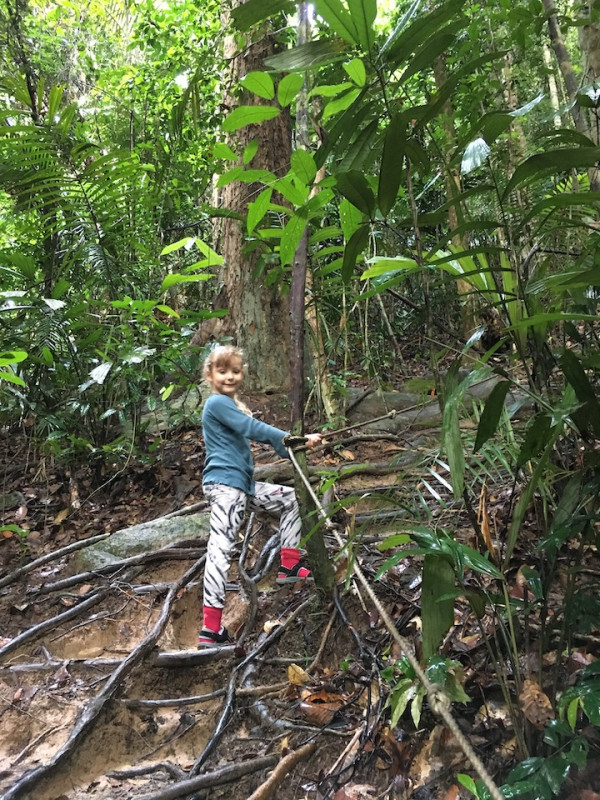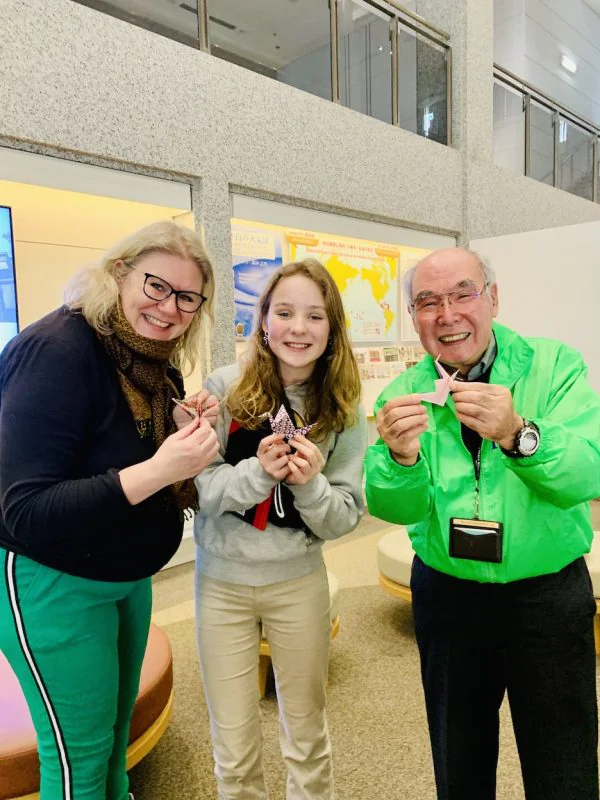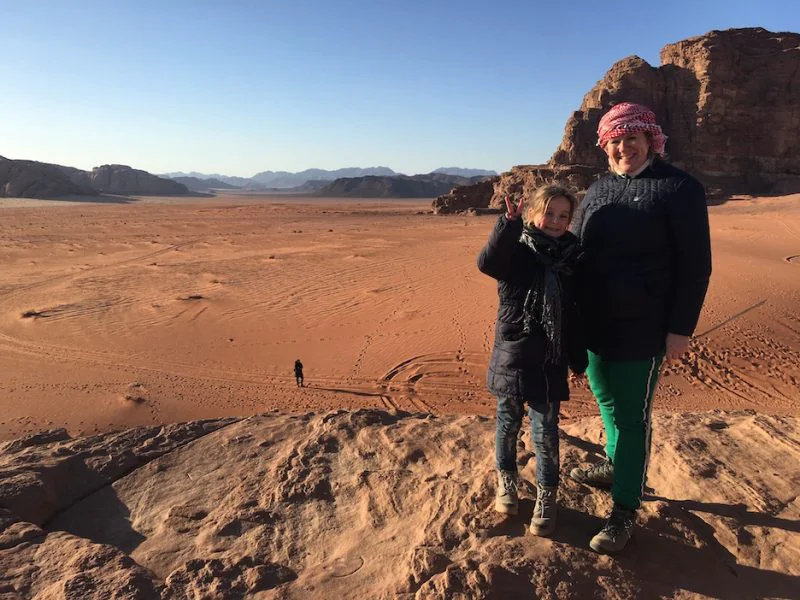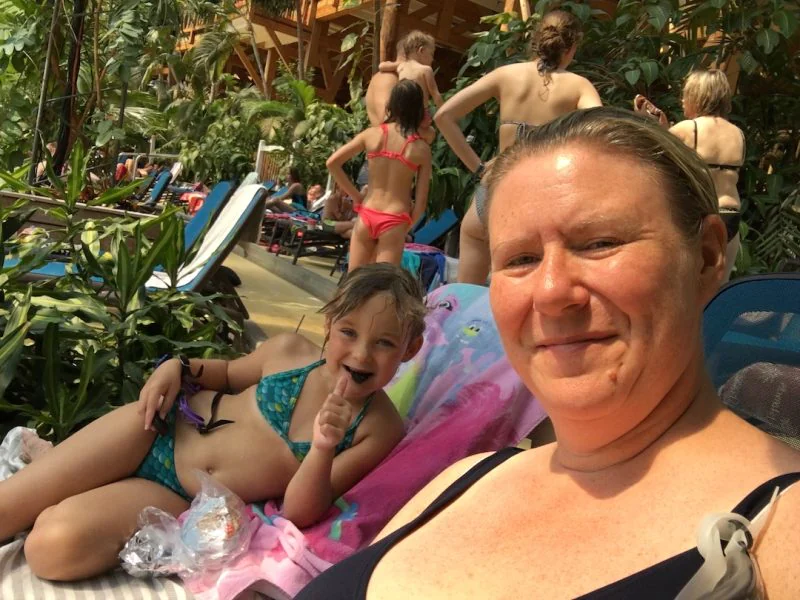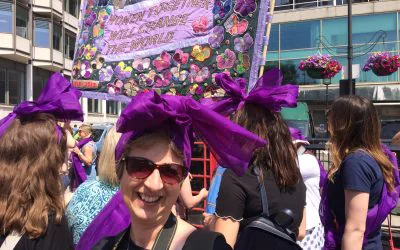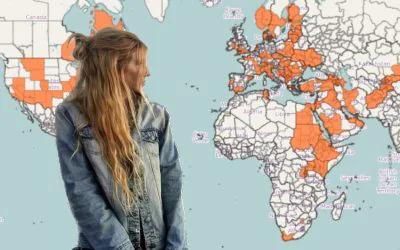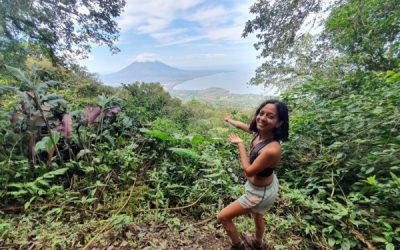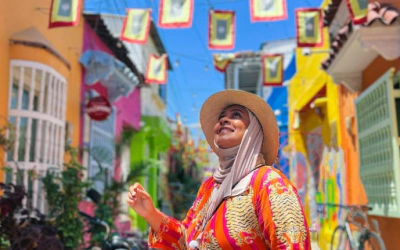Meet Merete Engell, is a seasoned Danish traveller with extensive experience in humanitarian work through her longstanding tenure at the international organization Médecins Sans Frontières (MSF), also known as Doctors Without Borders. As a trained nurse, she has received the prestigious Florence Nightingale medal for her contributions to nursing within MSF, where she served in various conflict zones and volatile regions worldwide. Currently, Merete holds the position of head of learning and development at MSF in Copenhagen, Denmark. A proud member of the LGBT community, she passionately explores the world, often embarking on solo adventures with her daughter.
You can also watch this interview in video form on our NomadMania YouTube channel. This interview was conducted by NomadMania Executive Committee member Yui Pow Redford.
Tell us about your early life. Can you tell us a bit about your early years and how your interest in travel developed? Do you recall your first international trip?
I grew up in the Copenhagen area. My mother was originally from Finland, which sparked early trips to Finland and Sweden. However, my first venture beyond Scandinavia was at 14 when I joined a youth club hiking trip to Switzerland. Seeing mountains for the first time ignited a curiosity in me that I couldn’t ignore. Later, at 16, I hopped over to London to catch a musical, followed by Ibiza for a party at 17. These experiences fed my appetite for exploration, and I realized travel was my calling. It became a way for me to break free from societal expectations and explore the world on my terms.
Your career with MSF has taken you to various conflict zones and challenging environments. Can you share some insights into your experiences working in these places and how they influenced your perspective?
My journey into humanitarian work was sparked during my time in Israel, where I worked in a nursing home in a kibbutz. There, I cared for Holocaust survivors, which profoundly impacted me and ignited a passion for humanitarianism. This led me to pursue nursing and eventually join MSF.
My first assignment with MSF took me to Ethiopia, and from there, I worked in Afghanistan, Liberia, Darfur, Congo, Niger, Haiti, Libya, and Iraq, among other places. Initially, the allure was the adventure, but soon, the desire to help others became central.
However, my early experiences were characterized by naivety. Over time, I delved deeper into the complexities of each situation, grappling with questions about healthcare access, political dynamics, and gender inequality. Working in conflict zones was both humbling and overwhelming.
I formed close bonds with the people I served, yet felt the weight of their suffering and the enormity of the challenges we faced. Despite the danger and adversity, every small act of assistance felt significant.
Adapting to the unfamiliarity of each environment was a constant learning curve. Even mundane tasks like enjoying a morning coffee posed challenges. Returning home, I often found myself marvelling at the simple comforts of everyday life, like switching on a light or flushing a toilet.
In essence, working on the ground in conflict zones is a journey of perpetual adaptation and learning, where every experience shapes your understanding of humanity and the world.
Did you find more of a connection with certain countries, or were they all unique and memorable in their own way? And how do you feel about how the media portrays life in these places?
Having been through my fair share of media interviews amid various disasters, I’ve come to realise just how skewed the narrative can be. They tend to focus on the most dramatic aspects, positioning themselves amidst the rubble and chaos. While they occasionally sprinkle in human interest stories, it’s usually the most sensationalised bits that make the headlines.
It’s my sincere hope that more people would take the time to look beyond these televised snapshots of crisis zones. There’s a whole world out there waiting to be explored and understood, beyond the sensational headlines. Travelling with my MSF colleagues to places like Gaza or Ukraine, I’ve encountered this pervasive perception of danger. While conflict zones do pose risks, it’s vital to acknowledge that life persists amidst adversity.
What often gets overlooked is that within these regions, everyday people continue to lead their lives amidst the turmoil. Families strive to maintain a sense of normalcy, children go to school, and communities band together to support one another. Yet, these everyday narratives rarely make it to the newsreels, overshadowed by the spectre of violence and tragedy.
Having lived through such experiences, I’ve come to appreciate the stark contrast between media portrayals and reality. The disconnect is palpable, and it’s a sentiment echoed by many who’ve ventured beyond the confines of sensationalism. When events in distant lands dominate headlines, it’s easy to forget the vastness of the world and the humanity that binds us all.
As someone who calls Denmark home, I’ve noticed how global incidents can shrink one’s perceived reality. A bomb explosion hundreds of kilometres away suddenly transforms the entire country into a tiny island in the minds of distant friends and relatives. It’s a reminder of the interconnectedness of our world and the importance of reaching out to loved ones during times of uncertainty.
If you ever hear of something happening in a far-off place, remember to check in with those who reside there. Because in times of crisis, the world may seem vast and daunting, but a simple call can bridge the distance and offer solace to those affected.
Are there any other particular travel memories that stand out? Or what would you say some of your favourite places in the world are?
This is a tricky question, because I’m always inclined to explore new places. I rarely revisit the same destination because life’s too short, and there’s a whole world out there waiting to be discovered. I’m particularly drawn to expansive natural landscapes.
I’m not exactly what you’d call a fitness enthusiast, so you won’t find me climbing mountains or embarking on multi-day hikes. I love road trips and soaking in the beauty of nature. Finland holds a special place in my heart, partly because I have family there, but also because of its vast, untouched wilderness. In contrast to Denmark’s manicured landscapes, exploring nature in places like Finland offers a sense of adventure and unpredictability.
Deserts have a magnetic pull for me. There’s something about their vastness and stark beauty that I find utterly captivating. A few years back, I ventured with my daughter to the Wadi Rum desert in Jordan. As a huge Star Wars fan, visiting this iconic location was a dream come true. Despite its commercialization, it’s still possible to veer off the tourist trail and immerse oneself in the rugged, untouched scenery.
However, I must confess, I prefer deserts when they’re not scorching hot. My stint in Darfur, where temperatures soared to 50 degrees Celsius, was a bit too much to handle. I appreciate the serenity of the desert, but I’m not one to laze on the beach for too long. After half a day of sunbathing, I’m itching to explore and get off the beaten track.
Tell us a little bit about your travel style. Do you prefer travelling on a budget or going mid range or luxury travel? Do you tend to plan or do you prefer to go with the flow and be spontaneous?
I’d say I typically opt for the mid-range option. During my time with MSF, I often found myself perfectly content in a modest hostel. However, as the years passed and I grew a tad more accustomed to creature comforts, I began favouring mid-range accommodations. Particularly when I’m travelling with my daughter, there’s something undeniably comforting about returning to a clean hotel room after a day of exploring. Plus, I have a soft spot for road trips.
I’ve embarked on road trips across various corners of the globe, and I usually take the reins when it comes to planning. I’m not one to rely on travel agents; instead, I prefer to chart my own course. Whether it’s finding a local guide or hailing a taxi, I typically have a few key destinations in mind. When visiting a new country, especially with my daughter in tow, I aim to experience a bit of everything – from the bustling city to the tranquil countryside, and of course, a dose of nature.
I’m particularly fond of UNESCO World Heritage sites, so those often make it onto our itinerary. As for accommodation, it varies from trip to trip. Sometimes I’ll have a few hotels booked in advance, while other times I’ll embrace spontaneity and book on the fly – thanks to the wonders of Booking.com or Airbnb, a last-minute room is just a few clicks away. It’s all about flexibility and seizing the moment.
Your daughter is currently 13 years old. How old was she when you began to travel together?
She was just four years old when I decided to take the plunge and venture out with her solo. After my divorce when she was three, I felt this itch to explore the world with her by my side. So, off we went to Paris – Eiffel Tower, Disneyland. She absolutely adored it. That trip was like a spark, igniting this passion for travel in both of us.
From there, it was a gradual journey of expansion. I’ve been fortunate to have a vast network of friends and acquaintances scattered across the globe, so wherever we went, there was usually someone familiar to stay with. It’s a beautiful thing, really – having that home away from home, especially when you’re travelling with a little one. We’d set up base with friends, rent a car, and set off on adventures around the country.
Travelling with a child, as thrilling as it is, does come with its share of challenges.
What are some of the biggest challenges involved in travelling with a child? Was there a particular age that she was that you found especially challenging when it came to travel with her?
The teenage years. I don’t think there’s ever been a specific age that stood out as particularly challenging when it comes to travelling with my daughter. It’s more about learning and adapting as we go along.
I remember this one trip to Iceland vividly. I had this grand plan – we rented an RV and set out to conquer the entire country in twelve days, covering a whopping 1600 kilometres and staying at ten different camping sites along the way. I had every minute of every day planned out – volcanoes, glaciers, beaches, you name it. But, as we went along, I noticed something – my daughter’s not-so-subtle hints that maybe I was being a bit overambitious.
She’d give me these looks, like, ‘Seriously, Mum?’ And that’s when it hit me – maybe I needed to take it down a notch. So, I made a conscious decision to slow things down a bit. I mean, sure, those sights were on my bucket list, but for her, a swimming pool, a burger, and a pretty view were just as thrilling.
So, I adapted. Now, wherever we go, we stay at least two nights in one place. It’s all about giving her – and me – the time to breathe, to soak it all in. Especially on those road trips it’s made all the difference. Sometimes, the best adventures are the ones where you take it slow and savour every moment.
Has travel, overall, been a good way to educate your daughter and teach her about the world?
It’s been absolutely invaluable in shaping her worldview. I firmly believe that travel is one of the best forms of education out there. It’s opened her eyes to different cultures, different people, and helped her realize that, at the core, we’re all pretty much the same. I want her to see the world as her playground, not as something to fear. Like, after our trip to Japan, she said, ‘Mom, I wanna spend a year there after school!’
As for her peers, they seem to think it’s pretty cool. She’s not one to brag about where she’s been or what she’s seen, but she’ll happily chat about our next adventure. And I think some of them are intrigued by the idea. Maybe we’ll inspire a few future travellers along the way.
I’ve noticed she’s way ahead of the curve in some ways, too. She’s already thinking about stuff like politics and geopolitics – she’s even got opinions on Trump. She’s clued in on things like women’s rights in Afghanistan. It’s pretty amazing to see how travel has broadened her horizons and sparked her curiosity about the world.
We stopped in Wittenberg, where Martin Luther nailed his theses to the church door, and then she came back to school and they’re learning about it in history class. It’s those moments when you realize that travel isn’t just about seeing cool stuff – it’s about living it, experiencing it, and learning from it. And that, to me, is the best education of all.
Has she mentioned any other places that she would like to visit? Do you have your own bucket list or do you really decide with your daughter, depending on the moment?
Japan was definitely at the top of her list, and it was such a fulfilling experience for both of us. She’s got her sights set on Australia next, thanks to a friend who’s been. And she’s keen on revisiting France. Then there’s the US – she’s curious about that too.
She’s also expressed interest in Africa, but she’s aware it might be a bit more challenging compared to our usual destinations. I’ve assured her we’ll make it happen when the time is right. We’ve got this big world map in her room, and we often huddle around it, plotting our next adventure.
As for me, South America. It’s this whole continent I’ve yet to explore, and I’m itching to immerse myself in its cultures. I’ve always believed in turning dreams into reality. So ticking off items on my bucket list is something I prioritize. I’m trying to instill that same sense of adventure in her, to show her that the world is ours to explore. But for now, it seems like Japan is still on her mind.
How do you navigate being part of the LGBT community while traveling, especially in places where there may be legal or social discrimination?
When we travel, we prefer not to draw attention to our identities for safety reasons, regardless of the local laws or attitudes. For instance, while in Borneo’s rainforest, my daughter wanted to disclose that she has two moms to our local taxi driver, who was a very devout Muslim. I gently reminded her that in situations where we’re dependent on strangers, it’s safer not to disclose such information.
It’s a reality we navigate, and my daughter is becoming more aware of it over time. She occasionally asks about LGBTQIA rights in different places, sparking conversations about minority experiences worldwide. These discussions underscore the privilege we have in Denmark, where we can openly express our identities and love freely. Unfortunately, this is not the case everywhere.
What’s your best advice for travellers, especially those with children?
Just go for it. Travelling with a child can actually be easier, as there’s a warmth and wish to connect. It’s like having a puppy where everyone wants to engage with it. Don’t let having a child hold you back from exploring the world. While caution is essential, especially avoiding destinations with extreme risks, don’t hesitate to venture off the beaten track. You’ll often find that people are particularly friendly and accommodating when they see you travelling with a child, creating unique opportunities for interaction and discovery.
Moreover, it’s crucial to recognise that your bucket list may not align with your child’s interests and capabilities. So, while you plan your itinerary, ensure that you incorporate activities that cater to your child’s preferences and age. This not only keeps them engaged and excited but also enhances the overall travel experience for both of you. By embracing spontaneity and being open to new experiences, you’ll create lasting memories and foster a sense of exploration and curiosity in your child.
And now for our signature question, if you could invite four people (dead or alive) to dinner, who would they be and why?
This is a tough one! If I had to choose: firstly, Hillary Clinton, because she’s one of the modern women who broke or nearly broke the glass ceiling. I’d love to have a meaningful discussion with her. Next, Florence Nightingale, the mother of modern nursing. I would love to have a professional discussion. Three is Karen Blixon, a Danish icon and writer who went her own way and had an adventurous soul. Finally, I’d pick Nick Cave, because I am a big fangirl and I love his dark lyrics.
